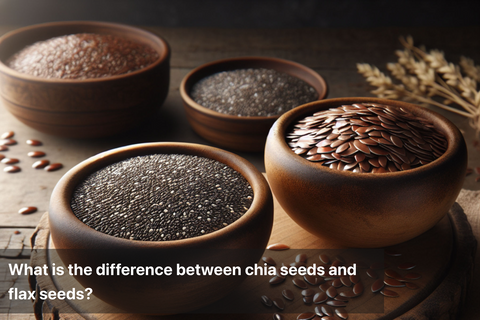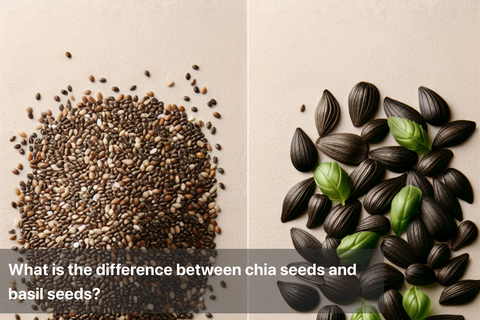
Is Keto Diet Safe? How to Know the Side Effects?
Keto meals are high-fat and low-carb meals. It is a very popular diet and recommended by doctors as a part of treatment for patients suffering from epilepsy for the last 100 years. This diet is known for its therapeutic role, but does that make it free from all risks and side effects? If you too are struggling to find out whether keto foods are safe, then my friend, you have come to the right place. Let's dive into the details to find out.

What is ketosis?
Before exploring the long-term safety and other involved risks of the keto diet first and foremost, it's important to know what ketosis is. Ketosis is a metabolic state where the body burns fat instead of glucose for energy; the breakdown of products of fat are ketones and the process is called ketosis.
What you may not know is that even overnight sleep can cause the body to go into ketosis. Fasting, both short-term or long-term religious fasts, low carb meals and exercise in a fasted state or increased physical activity, all can induce ketosis too. When the body enters a state of ketosis, insulin levels fall into our body, and the body switches to fat as the prime energy source.
Ketones are also produced naturally every day in small amounts, while a person sleeps. However, when you consume keto meals by lowering your carbohydrate intake, you induce a state of ‘nutritional ketosis’. In this state, your glucose and insulin levels reduce and you receive other metabolic benefits. It takes around 2 to 4 weeks for the body to adjust and adapt to these changes.
Is the keto diet safe? What are the health benefits?
A ketogenic diet is most likely recommended for people with certain metabolic health conditions. But it requires supervision and consultation from your doctor and dietician before moving ahead with the diet.
Some prominent benefits of the Keto diet include:
1. Reduces appetite and facilitates weight loss
The keto diet has a large set of health benefits stored for people with obesity. A very low-carb diet like keto suppresses appetite by decreasing the hunger hormone ghrelin and making you feel full. By adhering to keto meals, your body burns its fat, and this helps shed substantial amounts of weight and enables better management as well.
2. Effective in treating and reversing Type 2 diabetes
The keto diet is good for heart health and is a useful tool for treating type 2 diabetes. This diet helps improve insulin sensitivity and lowers blood sugar levels, leading to the discontinuation of medications in a few cases.
Consistent nutritional ketosis can reverse type 2 diabetes. In 2008, a 24-week study conducted to determine the effect of a low-carbohydrate or keto diet on people with obesity and type 2 diabetes proved that people who followed the keto diet showed greater improvement in blood sugar control, glycemic control and medication reduction.
3. Acts like a fuel source to the brain
In ketosis, the production of ketones and especially BHB (Beta-hydroxybutyrate) are higher and these ketones are a sustainable source of energy for the body that supplies fuel to the brain. Ketones reduce oxidative stress that helps fight a series of other diseases.
4. Improves Alzheimer's
Keto diet and low-carb diets may improve many neurological disorders like epilepsy, seizures and Alzheimer's. The high-risk factors of such a disease can be controlled and improved with a keto diet. The increased ketone production during ketosis helps reduce or control the risks of Alzheimer's to a large extent.
5. Effective in PCOS reversal
According to researchers, cutting back on carbs is useful in treating PCOS (Polycystic ovary syndrome). The common symptoms of PCOS are obesity, increased facial hair, and complications relating to pregnancy. Women with PCOS also have a high chance of developing type 2 diabetes over time.
In PCOS, the ovary of the patient overproduces the hormone androgen. Around 50% of women with PCOS have insulin resistance, which further intensifies the problem of obesity and insulin resistance. However, a low-carb or keto diet is extremely useful in PCOS reversal. A low-carb diet is proven to be useful in treating obesity and insulin resistance thus, it also enhances and improves the condition of PCOS and has beneficial effects on reversing fatty liver in females.
Keto diet dangers and possible risks
A keto diet is generally safe for most people, but that being said, it also includes potential risks and temporary side effects that shouldn't be dismissed. Although the diet comes with many health benefits, it is not advisable for all. There are certain conditions in which this diet is not suitable.
Ketogenic diets are contraindicated during pregnancy, in conditions of pancreatitis, liver failure, and disorders of fat metabolism. Type 1 diabetics and patients with a history of heart or kidney disease should start the diet under medical supervision. Breastfeeding women should try to avoid the keto diet.
Other than these few exceptions, there are also several other risks or side effects attached to a keto lifestyle.
1. Keto flu
When the carb storage in the body decreases and the body starts accepting a new dietary change like keto, one is likely to experience flu-like symptoms. These include fatigue, dehydration, dizziness, nausea and mood swings. These are temporary symptoms and not everyone on the keto diet experiences them. For some, it could last for a few weeks and get resolved with increasing hydration and electrolytes.
2. Risk of kidney stones
A well-formulated low-carb diet with moderate protein is not a problem for a person with a well-functioning kidney. In fact, a low-carb diet can help improve diabetes and hypertension which are known to cause damage to the kidneys. However, people with kidney malfunction or diabetics with a pre-existing kidney condition or renal stones should consult their doctor before starting out on the keto diet.
While on keto, people swap a lot of foods with high-fat and animal foods. But a large consumption of high fat like cheese, meat and eggs may make the blood and urine more acidic and increase their calcium content. This exacerbates the risk of kidney stone formation.
3. May cause nutritional deficiencies
Mineral, vitamin and calcium deficiency can be another long-term side effect of the keto diet. There are chances that your body might not receive the required amount of nutrients required.
4. Keto diet may increase LDL cholesterol
Keto diets are believed to help increase good HDL cholesterol and decrease levels of triglycerides in the blood. However, it has been reported that a subset of people following this diet may increase their bad LDL cholesterol, which is more short-term.

The bottom line
A keto diet is not meant for everyone. It is a nutritional strategy advised for people who are battling metabolic diseases and conditions associated with insulin resistance. It has many health benefits. However, before starting the diet, it is advised to check with a doctor first to minimise any risks or complications.
References:
https://www.medicalnewstoday.com/articles/keto-diet-side-effects
https://www.dietdoctor.com/low-carb/ketosis
This Blog post is an initiative by Lo! Foods, to provide accurate and Nutritionist / Doctor approved information related to Health. Lo! Foods is India's leading brand for Everyday Functional Foods. Foods designed for specific Health conditions or Needs. Lo! Foods also runs India's largest range of Low Carb Healthy Cloud Kitchens, under the brand names of Lo!, ProteinChef, ATH (All Things Healthy) and DiabeSmart.













Leave a comment
Your email address will not be published.